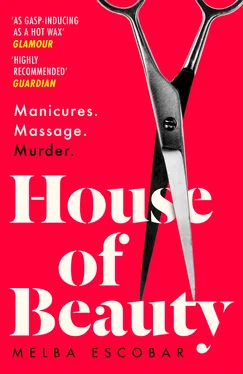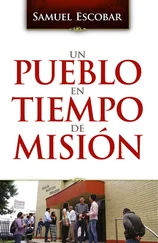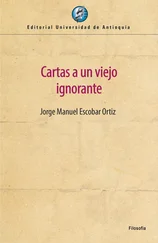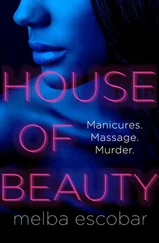As the days passed, her happiness, her infatuation, her madness was so acute that she started to let her flesh do the thinking.
She let him make love to her down a dark street in Getsemaní and for the next three or four months kept letting him do so wherever and whenever they could, with growing appetite and surrender. Nixon Abelardo Barros told her so many things that amazed her. For him, she read Melissa Panarello’s 100 Strokes of the Brush Before Bed , Simone de Beauvoir’s The Second Sex , Coelho’s Love Letters from a Prophet , and Nietzsche’s Thus Spake Zarathustra . They kindled a chaotic revolution inside her. That was when she started to look differently at women with waxed eyebrows, and to let the hair grow under her arms as an expression of freedom. ‘I wasn’t put in this world to please men,’ she told her mamá when she asked what those tufts sprouting from her armpits were. ‘Come off it, young lady – please me, then.’ Doña Yolanda had been known to go without food if money was scarce, yet would never sacrifice her trips to the hairdresser.
Her mother had bet on Karen’s beauty as their best shot at escaping poverty. She often told her daughter that if she had been presentable the morning after her fling with the gringo, if he hadn’t caught her in a dishevelled mess, with bags under her eyes, he would never have left her waiting in vain, ‘whistling iguanas’ as she called it. As far as Karen understood, her father was a poet, an artist, a traveller, though she often intuited that her mamá had an active imagination, since from one day to the next he was a troubadour from Sincelejo, a boxer from Turbaco and an English sailor. Karen liked the last idea best.
She was a tall, skinny adolescent, and though her mother fed her as well as she could, the only thing that grew were her bones. Every morning Doña Yolanda readied the grill and cooked up scrambled eggs with cultured buttermilk, rice, beans, yuca and fish, yet the girl only stretched upwards. Happiness for Karen was in that breakfast and berry juice, sitting in the patio, when the picó sound systems had been switched off and Calle del Pirata no longer boomed with competing melodies – vallenato , reggaeton , champeta , rancheras , the same war every weekend. It was in the barefooted kids kicking up the dust in the street, and in her cousins bringing over crates of chilled Costeñita to drink out the front, some lounging on Rimax chairs, and Uncle Juan in his rocker, always quiet, always serious, his eyes red from getting only a few hours’ sleep, his smile helpless as he contemplated her with alcoholic fondness.
In her rebellious period, Karen left untouched the wild curls nature had given her. But after Emiliano was born and she began training as a beautician, the drone of her mother and her beauty-school education wore at her resolve. Not only did she get sick of explaining why she preferred to keep her natural curls, but she became an expert in straight hair.
For her family, girlfriends and people she knew, using a condom when sleeping with a man was the equivalent of being treated like a prostitute. ‘If there’s love, there’s no condom,’ Doña Yolanda repeated. She rounded out that sentence with one of her many superstitions: ‘If a man tells you he cares for you, look at his pupils. If they dilate, he’s lying.’ Nixon had said he cared for her, and his pupils had stayed the same. But more than that, Karen trusted him.
Nixon was not another man who talked only about money and cars, and about women as if they were livestock. Nixon didn’t go around wearing gold chains, he wasn’t obsessed with champeta or Rey de Rocha concerts. Nixon liked poetry – like her father, thought Karen, though she didn’t really know anything about her father. He also understood that she would choose a university degree any day over competing in the end-of-year district beauty contests.
In that first semester, as well as sitting exams and writing essays, Karen tried marijuana, dancing to classic salsa, but above all she tried sex, whenever and wherever; she discovered she could revert to a primitive state, and she relished it. She learned to go into a kind of trance, almost always with Nixon, and at other times with the help of the Chinese balls her mother kept in the kitchen drawer, Uncle Juan’s foot massager or her own hand.
For Karen, reading Eduardo Ramelli’s I Love Myself meant she could keep any guilt about her behaviour at a prudent distance, or at least distract herself with the arguments of a book underpinned by hedonism. While she was reading it, a few things started happening to her: a sick feeling in the morning, swollen breasts that ached at the slightest touch, sleepiness and fatigue. She was halfway through the book when she decided to take a test one Sunday morning.
‘Fuck,’ she said. She’d just turned nineteen.
Her mother stopped talking to her for a few weeks, until one suffocating afternoon Karen heard her scooter approaching. Karen was lying on her bed with rollers in her hair, leafing through an old magazine.
‘What’s the plan? Just lie here all day, getting fat on sunlight?’
‘I fed Uncle Juan,’ Karen said.
‘Go and do something. You’re pregnant, not sick. Make yourself busy doing whatever I tell you to, or you’re out of here.’
Of all the books she read, the one that stayed with her – the one she read right up to the day she gave birth – was I Love Myself , though she no longer thought its message was aimed at her.
The man sitting beside Karen that sunny morning at Sabrina Guzmán’s funeral was none other than the author of her bedtime reading, Eduardo Ramelli. He must have been over sixty. His even cinnamon complexion shone, and he had blue eyes and greying, neat hair slicked back with gel, like a heart-throb of old.
‘Chanel No. 5,’ he whispered in her ear.
Karen kept quiet, not because she didn’t know the author of Happiness Is You was wearing Paco Rabanne 1 Million, nor because she didn’t want to play the game, but because her throat had closed up. Ramelli shot her a half-smile, his eyes fixed on the priest but clearly conscious of her delicate presence beside him.
‘What’s your name?’ he asked after the Eucharist. A long and severe ‘shhh’ from nearby ended his efforts to get her to talk. Then came the familiar ‘Go in peace’. Mass was over. The first two pews were reserved for close family. A woman was crying inconsolably, her arms wrapped tight around a young boy. The keyboard sounded and an out-of-tune choir sang ‘Ave Maria’ while the funeral goers filed out of the church. Karen reached the aisle and headed for the exit. She smelled Ramelli behind her for a couple of metres, until she lost the scent when two tall women intercepted him. She focused her attention on the ladies. They had fluffy hairdos, like egg whites whisked to stiff peaks. Tailored clothing hung from their brittle bodies. Some had drivers waiting for them outside. Often a bodyguard handed his employer a bulky umbrella at the exit, so she could take her time smoothly skirting the puddles while he ran in the pouring rain to the same car. Then they all got in, women in the back, servants at the front.
Crossing Avenida Calle 100, Karen was assaulted by the beeping horns, the exhaust fumes, the green buses as timeworn as the hunger of those begging, the one-armed men clutching squeegees on the hunt for coins, the displaced people with their dirty bits of cardboard that invariably told the legend of a lost town, the chronicle of a massacre. They’d all used the same black marker to set down the account, with grammatical errors, their handwriting suggesting they’d barely finished third grade, and they’d done so with an unsteady hand, the pavement their only support; once they’d got their story down they set up on the same ordinary corner and went in search of the elusive compassion of the commuters. Several women, almost always black or indigenous, with children hanging from their breasts or back, kept one hand on the little one, held the cardboard in the other and had their coin tins tucked under an arm. It was a sorry balancing act, and the women engaged in it had to be constantly alert to the changing traffic lights.
Читать дальше












